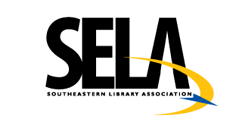Abstract
Juliette Hampton Morgan was the first white Alabama librarian to publicly support racial equality and desegregation initiatives, yet she remains largely unknown amongst library professionals, including those in her home state of Alabama. Outside of Montgomery, Alabama, where the central library in which she worked was renamed in her memory, little is known of her. This is evidenced by the scant information about her in the Alabama Library Association’s archives at the University of Alabama, the lack of recognition by the Alabama Library Association, and the slight understanding of Alabama librarians regarding her role in Alabama library history. (Knowledge gained from author’s work with the Alabama Library Association, extensive research in the Alabama Library Association archival collection – University of Alabama, and author’s interactions with highly involved library professionals from across the state). The story of this “sensitive” librarian who challenged the southern status quo through her vocal encouragement of desegregation, including in public libraries, is vital for a comprehensive knowledge regarding the history of southern public libraries (Dobbins, 1957). While non-southern public libraries had their own racial issues to address, many public librarians in the South, and especially in Alabama, experienced a private “conflict” between their professional values to provide the “highest level of service…[and] equitable access” to all library users, and their segregated societies that legally separated users, making it nearly impossible to achieve their profession’s goals (Graham, 2001, 1-2; American Library Association, 1939). Most librarians kept their struggle quiet, limiting it to private communications or confidential professional records. In contrast, Morgan documented her experience publicly, revealing how she gave voice to a “silent majority” of Alabama librarians who supported desegregation and prepared “the way for a happier and more equitable future” in Alabama libraries (Morgan, 1957). Currently, little scholarship on her professional life, influences, and impact is available. While Mary Stanton’s biographical work is significant to understanding the life of Morgan, Stanton stated in an interview with this article’s author that, as she was not a librarian and she did not focus on Morgan’s librarianship, encouraging further research on her professional life (Mary Stanton, personal communication, March 1, 2019). This article attempts to do that and add to the library literature on this topic.
Publication Date
Fall 10-1-2019
